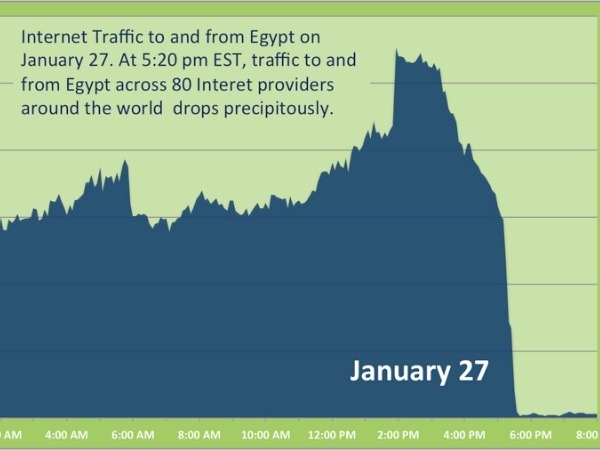
While Egypt remains mired in civil unrest and the government attempts to get ahead of the protests by blocking Web communications, China is taking a note. Several Chinese websites, including online portals Sina.com and Netease.com, as well as China’s Twitter equivalent Weibo, have blocked the word “Egypt” in keyword searches, the New York Times reported Monday. The blocks went into effect over the weekend.
The blocks are not all that surprising, and considering the Chinese government’s pattern of justifying its censorship policies on the need to protect civil order, it is even less surprising that the scattered Chinese news reports on Egypt have characterized the situation as one of rioting and looting.
While Sina.com has blocked the word “Egypt” from its search terms, it has posted an editorial that depicts the city of Cairo as devolving into chaos. The editorial notes that normal day-to-day life in Cairo was only able to resume minimally once soldiers took to the streets to “keep the peace” and fend off robbers and looters.
In a blunt statement showing exactly who the Chinese government is rooting for, Chinese foreign ministry spokesperson Hong Lei told reporters on Sunday that the Chinese government hopes that the Egyptian government will be able to restore order quickly. “China has been closely watching the development of the situation in Egypt. Egypt is a friendly country with China, and we hope Egypt could restore social stability and normal order at an early date,” he said.
The Chinese government has made similar moves to block social networking sites during periods of civil unrest. In June 2009, the government blocked a number of sites including Facebook and Twitter in preparation for the 20th anniversary of the Tiananmen Square Massacre. Preparing for pro-democracy protests, the government blocked Chinese netizens’ access to Facebook and Twitter, and then unblocked them briefly in July when it looked like the country’s political climate had returned to normal. But when ethnic violence led to riots in the western region of Xinjiang that left 156 dead and more than 800 injured, the government blocked the websites once more.
In November 2010, known human rights activist Cheng Jianping became the first woman ever to be arrested in China for a tweet. The tweet sarcastically poked fun at young Chinese nationalists who had gone on an anti-Japanese rampage following a maritime dispute, and Cheng was promptly arrested, charged with “disturbing social order,” and was sentenced to one year of re-education in a labor camp.
Leftist Chinese blogger Zhao Jing told New York Times reporters: “it was amazing netizens on Twitter cared about Egypt so much,” referring to the many similarities Chinese Web users have been drawing between the Egyptian and Chinese political climates.
Image source: tmcnet.com


















